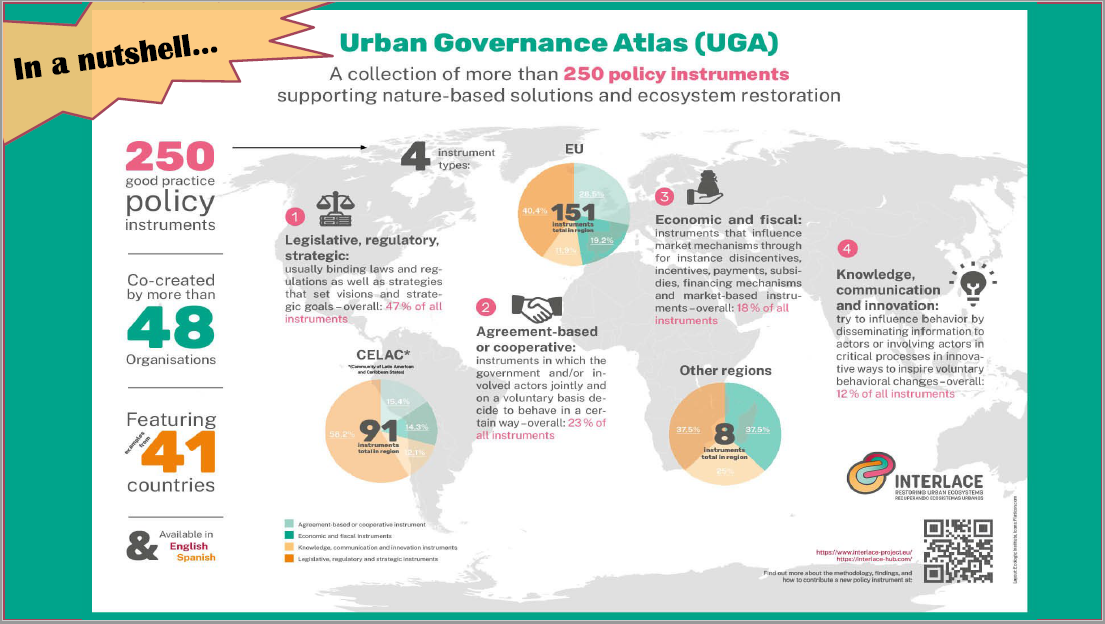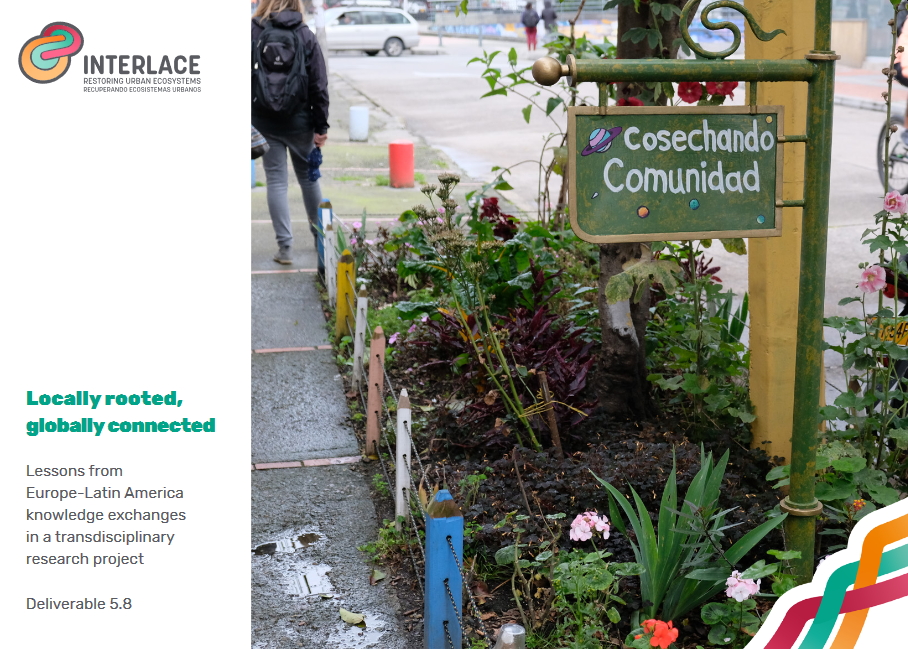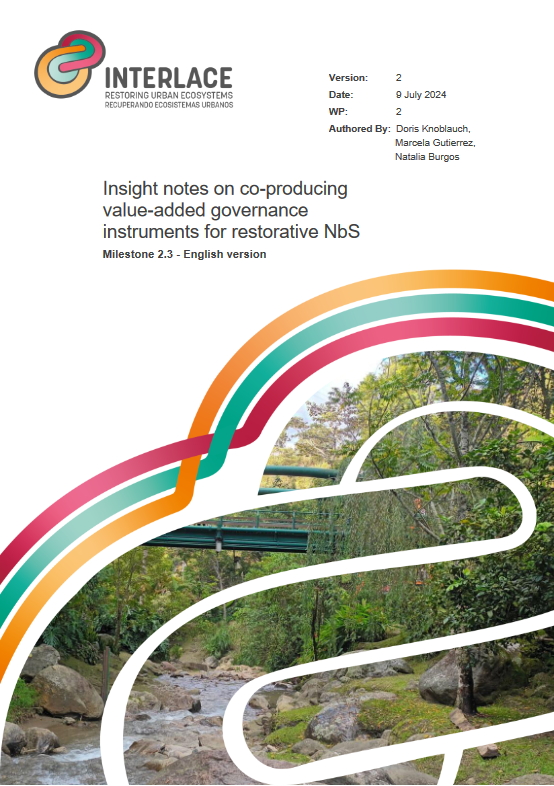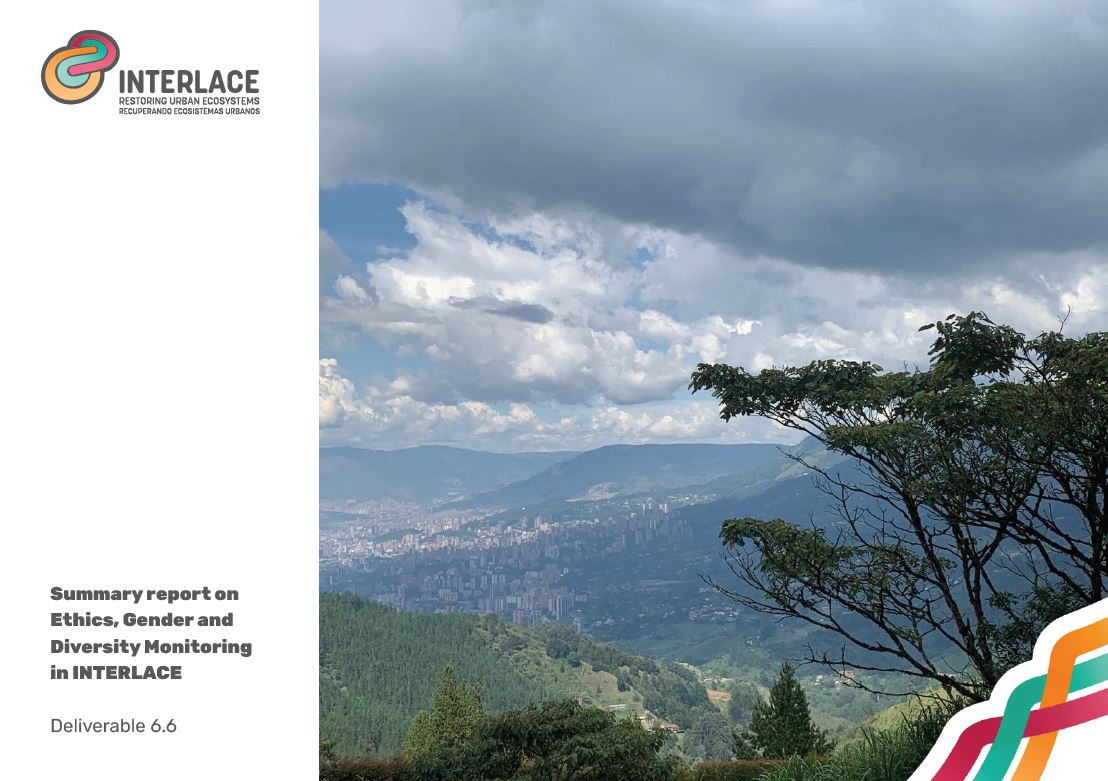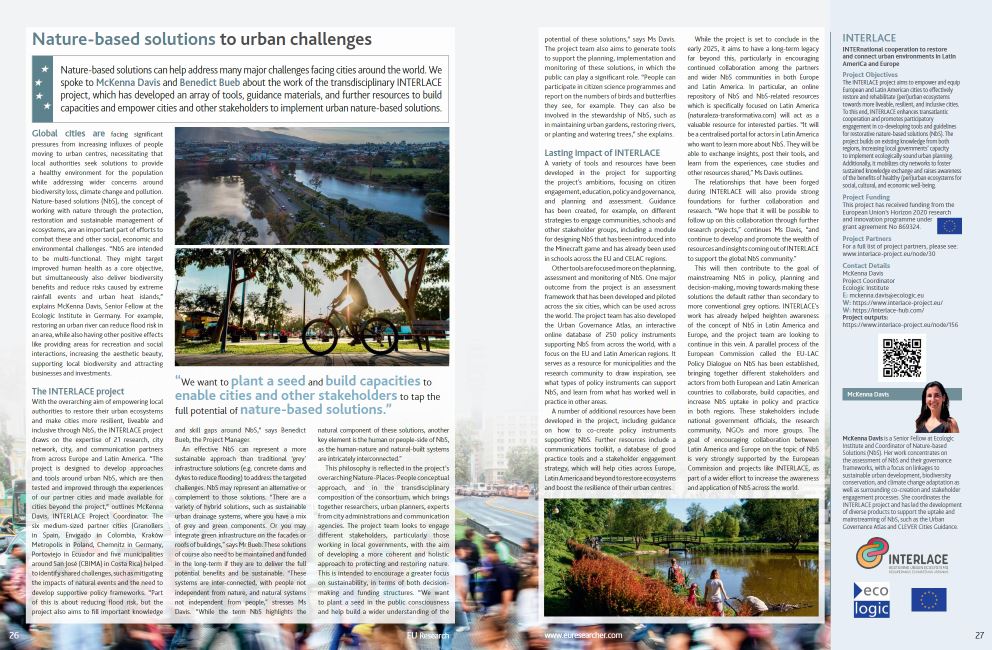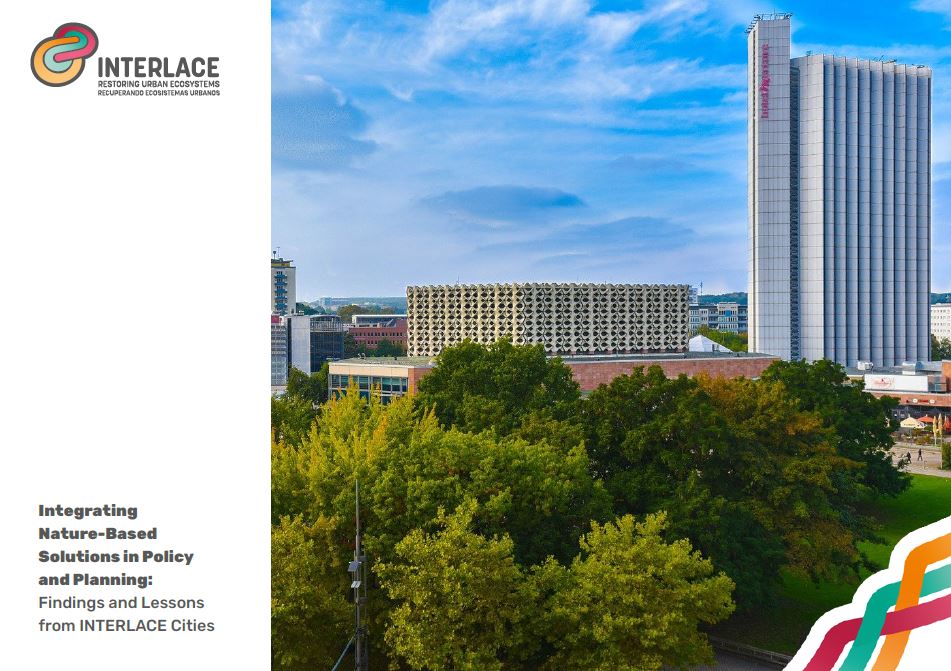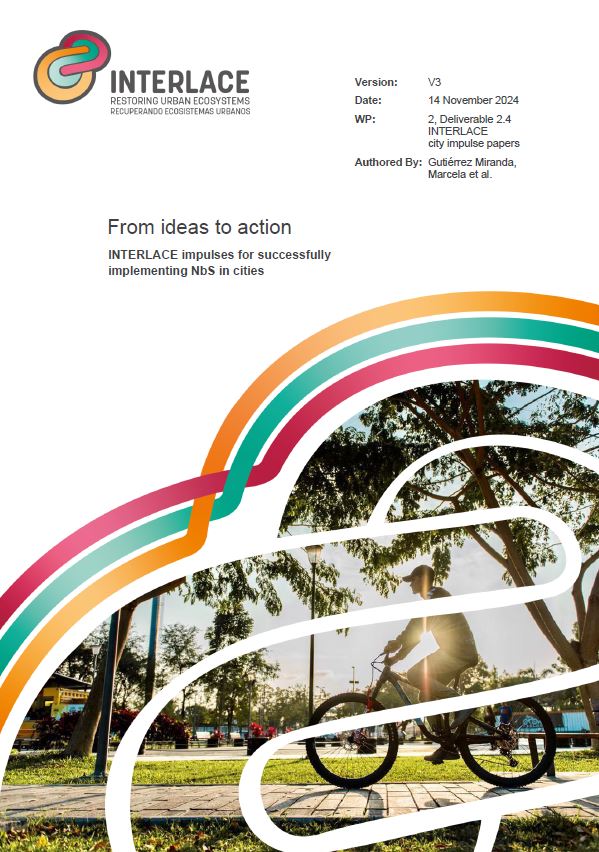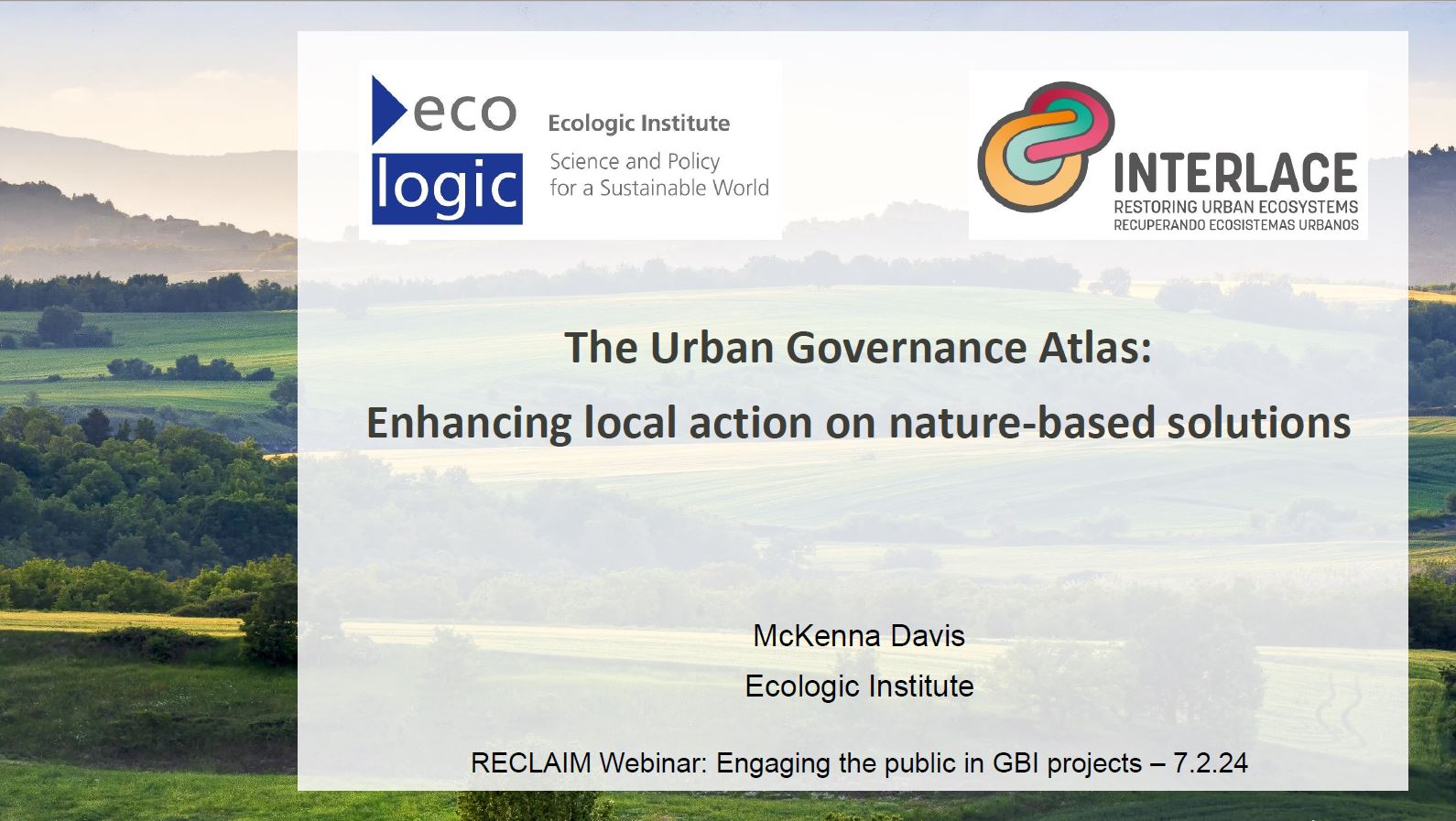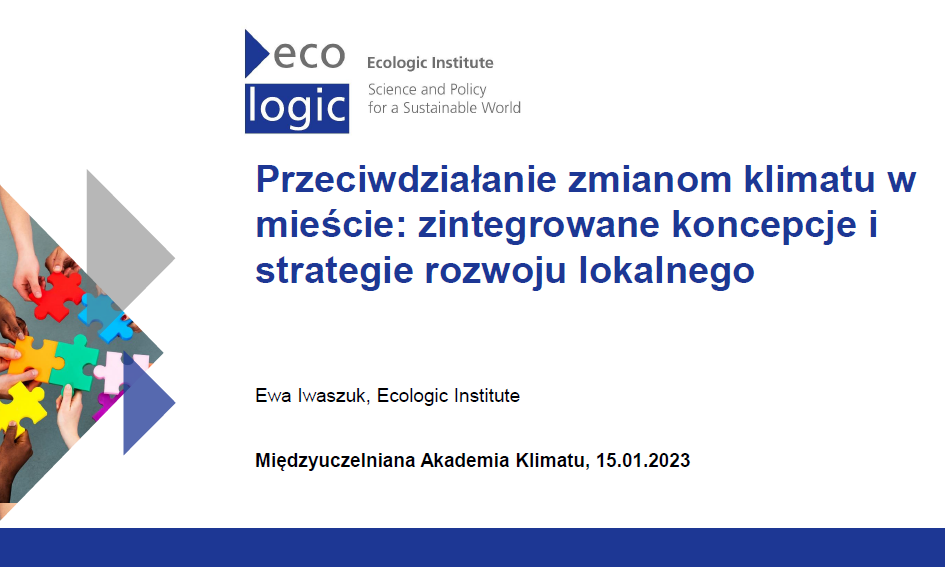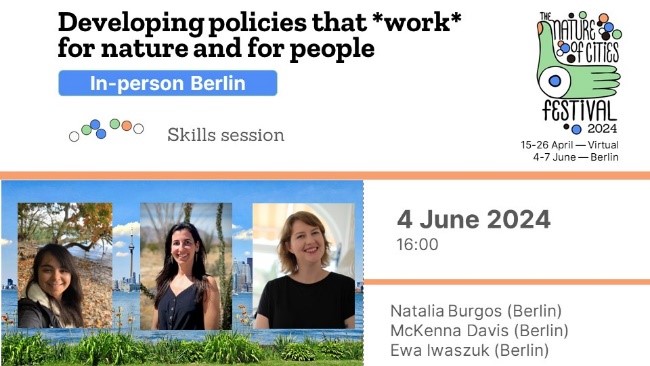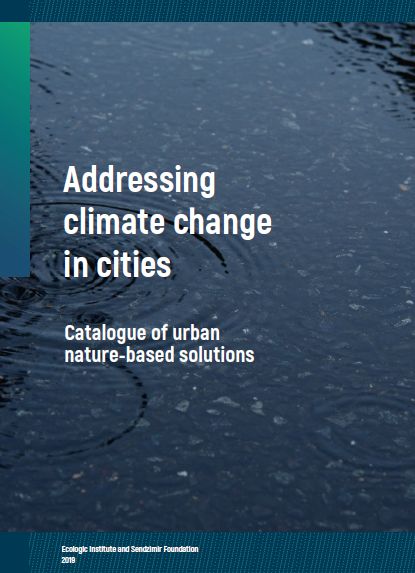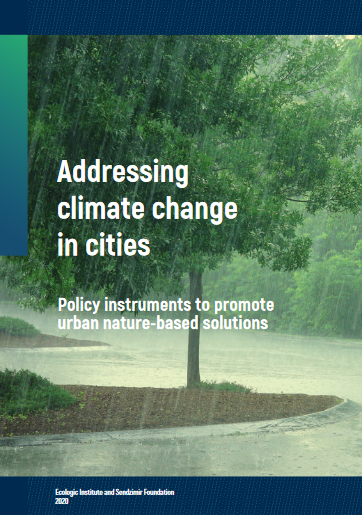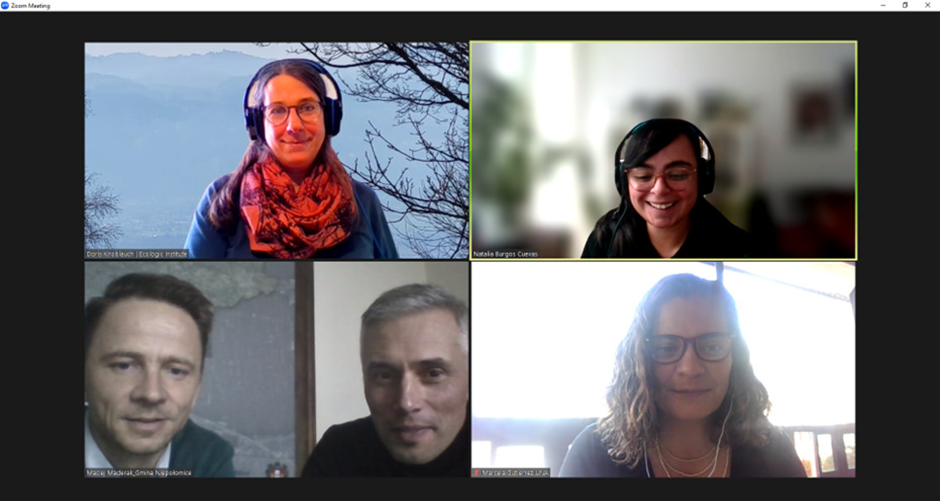
© Ecologic Institute
Integrating Nature: Promoting nature-based solutions (NbS) in Niepołomice (Poland)
Representatives of Niepołomice win INTERLACE storytelling competition and receive customised NbS training
- Presentation
- Date
-
13 December 2023 and 12 March 2024
- Location
- online
- Lecture
-
Natalia Burgos Cuevas
Niepołomice, a Polish city with almost 30,000 inhabitants, has received customised training on how to tackle challenges in their community with nature-based solutions. Marcela Gutierrez (University of Costa Rica), Natalia Burgos Cuevas and Doris Knoblauch (both Ecologic Institute) presented concrete options for the municipality to representatives of the city of Niepołomice in March 2024, after the city representatives had presented the urban challenges in December 2023.
In May 2023, the city representatives had already won this training as a prize in a storytelling competition held as part of the INTERLACE project. The aim of the exchange was to improve the city's sustainability through nature-based solutions (NbS).
The presentation focused on the integration of NbS into urban management, centred on three key themes:
- green belts,
- public spaces, and
- urban mobility.
Practical examples provided inspiration and showed how other cities have successfully implemented NbS in these key areas.
About green belts:
- The Metropolitan Ecological Belt (CEM) in Guatemala City aims to establish a network of natural areas with varied protection and management strategies to ensure sustainable environmental services, enhance the quality of life for residents, and become a significant aspect of the city's identity and landscape.
- The Special Plan of the Green Belt of Terrassa, approved in January 2020, aims to organize and regulate the non-urbanizable land in Terrassa, Spain. It establishes environmental protection measures, conditions for public uses, and economic activities. With active citizen participation, the plan covers all non-urbanizable land in Terrassa, except areas designated under the Natural Park of Sant Llorenç del Munt i la Serra de l'Obac. The regulated surface area is 3622 ha, and the plan resulted from initiatives starting in 2012 following environmental organizations' demands to protect and manage the Green Belt.
About public spaces:
- The Glasgow City Council and Glasgow Housing Association launched the Stalled Spaces community-based agreement in 2011 to address long-term issues of stalled development and abandoned land in Glasgow, Scotland. The instrument provides short-team leases and professional advice to voluntary community groups to create innovative projects such as pop-up gardens, natural play spaces, wildlife areas, urban growing spaces, and art sculpture parks over a temporary basis prior to development.
- Local businesses undertake joint efforts to help improve their immediate area. The Greater London Authority provided partial funding to deliver demonstration nature-based solution projects to raise the profile of green infrastructure and highlight the benefits to residents and businesses.
About urban mobility:
- The City Lounge in Rotterdam, Netherlands is a key action by the Rotterdam municipality to develop the city centre, especially with regard to mobility. Comfort for pedestrians and cyclists is improved, while car traffic is discouraged. It is part of the Rotterdam Urban Traffic Plan 2017-2030+.
- The creation of an ecological zone in Ljubljana, Slovenia is an integral part of the sustainability strategy "Vision Ljubljana 2025". Since 2007, increasing stretches of the city centre have been banned for cars, so that now an area of over 100,000 m2 is reserved for pedestrians, cyclists and electric taxis. Moreover, green spaces for social and sporting activities in formerly degraded areas are provided.
The training thus supported the brainstorming process and the city representatives were motivated to continue realising the green vision of Niepołomice.




